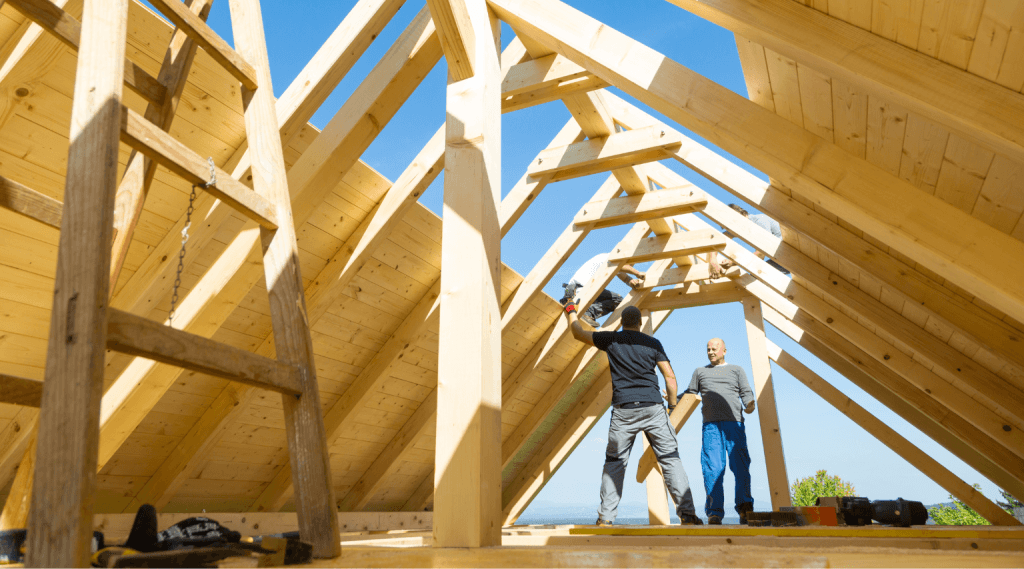Renovations, whether small DIY jobs or large professional projects, can seriously boost your property’s value. And having the right insurance cover protects your investment and hard work. Surprisingly, over half of all reno projects in New Zealand homes happen without proper insurance cover. What’s more, over a third of homeowners assume their house insurance protects them during renovations, according to research commissioned by Tower Insurance. But the reality check hits hard when things go wrong.
Before you start swinging that hammer, get to know the ins and outs of insurance cover for any planned or future renovations to your home or commercial property.
Planning your renovation
Check your existing policies
House & Contents Insurance and Commercial Property Insurance can financially protect your property from accidental damage, theft and weather events. Most insurance providers will cover you for minor work up to a certain value under these policies. If your reno plans are cosmetic – like new carpet or a lick of paint – your regular insurance should be enough.
Minor work that may be covered under your existing policy includes:
– Relining interior walls with plasterboard
– Painting
– Stripping and sanding floors
– Laying new carpet and vinyl
– Renovating a bathroom or kitchen
– Rewiring and replumbing
– Replacing spouting
– Building a deck
– Laying a new driveway
But if you’re planning a major reno, like an extension or knocking down a structural wall, you’ll need additional cover. Most house insurance policies won’t cover renovations involving structural alterations, work on load-bearing walls, roofing or external cladding. If you’re insured with Moneybox and you’re questioning whether your existing policy covers your planned renovations, get in touch with our General Insurance team. We’ll ask you a few questions about the extent of the work and whether the property will be vacant during your renovation, and we’ll let you know if additional cover is needed.
Make sure your builder has Public Liability Insurance
As the property owner, it’s your responsibility to ensure you’re adequately protected. Before finalising a contract with your chosen builder, it’s crucial to verify that they’ve got Public Liability Insurance, also known as General Liability Insurance. This insurance provides coverage for any accidental damage, caused by tradespeople on the construction site, to other individuals or their properties.
Secure Construction Insurance if needed
If the work you have planned falls outside the scope of your current insurance policy, you’ll need Construction Insurance, also known as Contract Works Insurance, Site Cover, or Builders Risk Insurance. Construction Insurance safeguards projects that are underway. In the event of an insured incident, such as a fire, flood, or vandalism, leading to loss or damage to the ongoing work, this insurance will cover expenses associated with repairs or resuming the project.
Imagine adding a second level to your property, and during construction with the roof removed, a storm wreaks havoc, causing significant damage. The financial consequences of this may be beyond what your emergency funds can handle. So it’s important you’re adequately insured to cover expenses like debris removal, additional labour, equipment, and materials.
When securing construction insurance, you’ll need the following information handy:
– Your existing insurance policy.
– Your builder’s details.
– Your engineer’s and architect’s details, if applicable.
– Whether you’ll be living or working on site or somewhere else during the reno.
– The total cost of the job.
– The extent and scope of the work.
– Consents obtained, if applicable.
While the work is underway
Keep an eye on project timings
If your renovation project is experiencing delays or falling behind schedule for any reason, you’ll need to extend your Construction Insurance policy to maintain cover throughout the additional time.
Secure your property
During your renovation project, it’s important to look after your belongings. On a construction site, get into the habit of:
– Keeping your tools safe.
– Locking away appliances until they’re installed.
– Checking all doors and windows are locked when it’s ‘tools down’ at the end of the day.
– Keeping anything that could be used to access your property out of site e.g. ladders and wheelie bins.
– Know the tradies who have access to your property, and let your neighbours know who you’re expecting and when, especially if you’re not going to be around!
Future-proof your property
A renovation project provides a great opportunity to think about how you can make your property safer and more secure. Smoke alarms, security alarms, window latches and deadlocks will help protect your property throughout the project and well into the future.

When your renovation is complete
Update your property’s sum insured
Chances are, your renovation has added value to your property, meaning it’ll probably cost more to rebuild should something catastrophic happen. It’s likely your sum insured will be out of date, so you’ll need to recalculate your sum insured on completion of your project. The value of your contents may have risen too if you’ve invested in fancy new furnishings and appliances, or even tools and equipment needed to do the work. You can estimate the cost to rebuild your home and replace your home contents using the handy calculators on our homepage. It’s important that your sum insured is as accurate as possible, so your investment is protected.
Whether you’re planning a home renovation or commercial renovation, a well-structured insurance policy will give you peace of mind, knowing that your investment is adequately protected. Get in touch to tell us about your renovation plans today.

